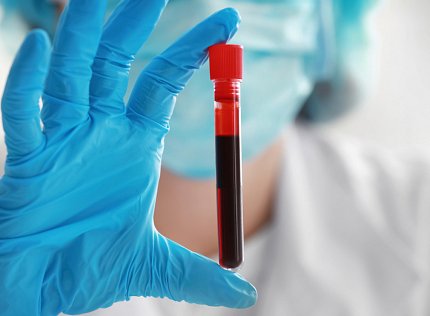Blood Test May Detect Cancer Earlier in People with NF1

Photo: Aquarius Studio / Shutterstock
People with an inherited condition known as neurofibromatosis type 1, or NF1, often develop benign tumors that grow along nerves and can sometimes turn into aggressive cancers.
Researchers from NCI and Washington University School of Medicine have developed a blood test that, they believe, could one day offer a highly sensitive and inexpensive approach to detect cancer early in people with NF1 as well as help doctors monitor how well patients are responding to their treatment. The findings are published in PLOS Medicine.
NF1 is the most common cancer predisposition syndrome, affecting 1 in 3,000 people worldwide. The condition, caused by a mutation in the NF1 gene, is almost always diagnosed in childhood. Roughly half of people with NF1 will develop large but benign tumors on nerves, called plexiform neurofibromas.
In up to 15 percent of people with plexiform neurofibromas, noncancerous tumors turn into an aggressive form of cancer known as malignant peripheral nerve sheath tumor, or MPNST. Patients with MPNST have a poor prognosis because the cancer can quickly spread and often becomes resistant to both chemotherapy and radiation. Among people diagnosed with MPNST, 80 percent die within 5 years.
Currently, to determine whether plexiform neurofibromas have turned cancerous, doctors use imaging scans, which are costly, or biopsies, which are invasive. Both can be inaccurate.
Investigators collected blood samples from 23 people with plexiform neurofibromas, 14 patients with MPNST who had not yet been treated and 16 healthy people without NF1. Most study participants were adolescents and young adults, the age group in which MPNST most often develops.
The researchers isolated cell-free DNA—that is, DNA shed from cells into the blood—from the blood samples and used whole-genome sequencing technology to look for differences in the genetic material among the three groups. Differences in cell-free DNA among the 3 groups allowed the researchers to differentiate, with 86 percent accuracy, between patients with plexiform neurofibromas and those with MPNST.
Blood tests of this type also have applications in early detection and monitoring of patients with other cancer-predisposing genetic disorders.
